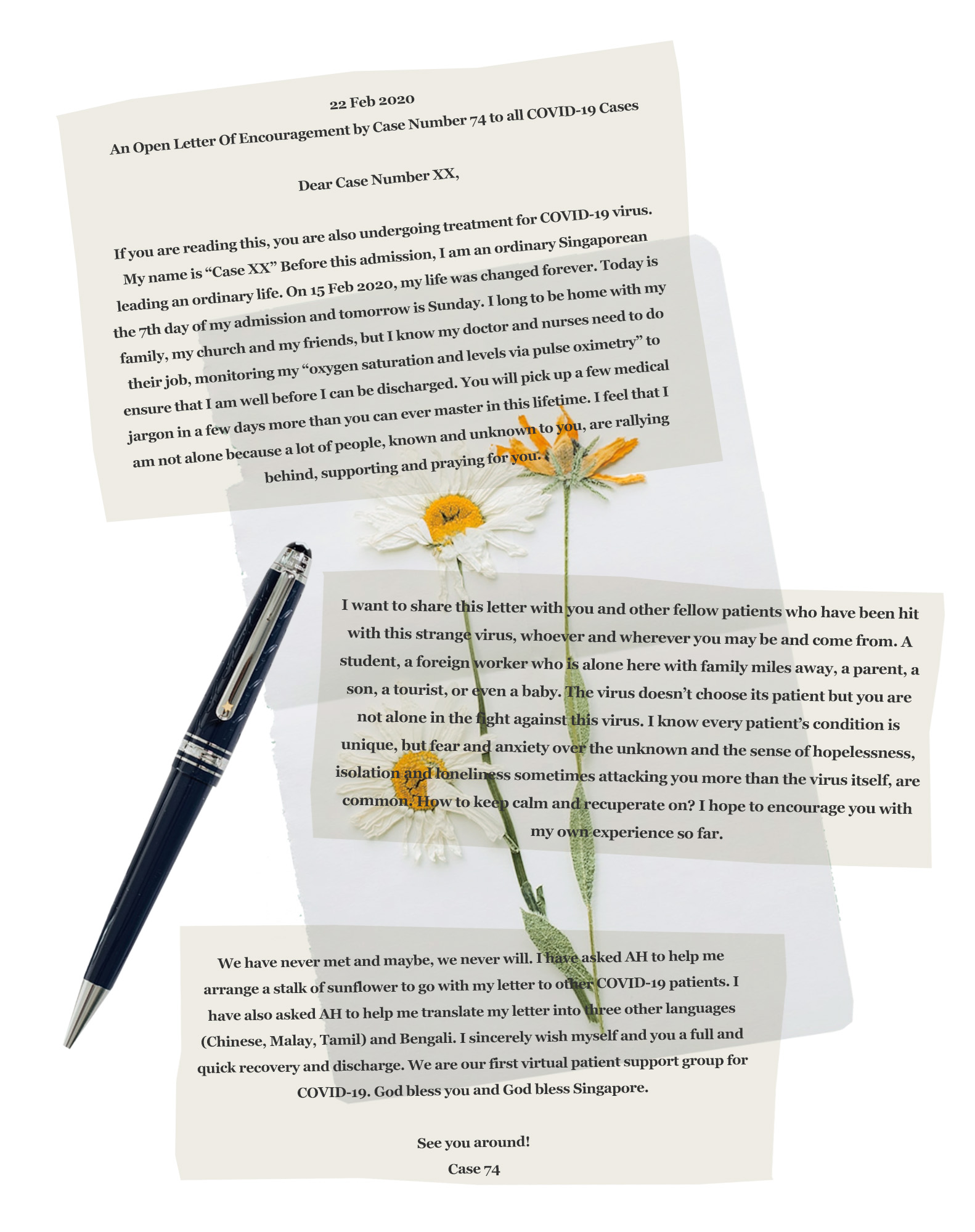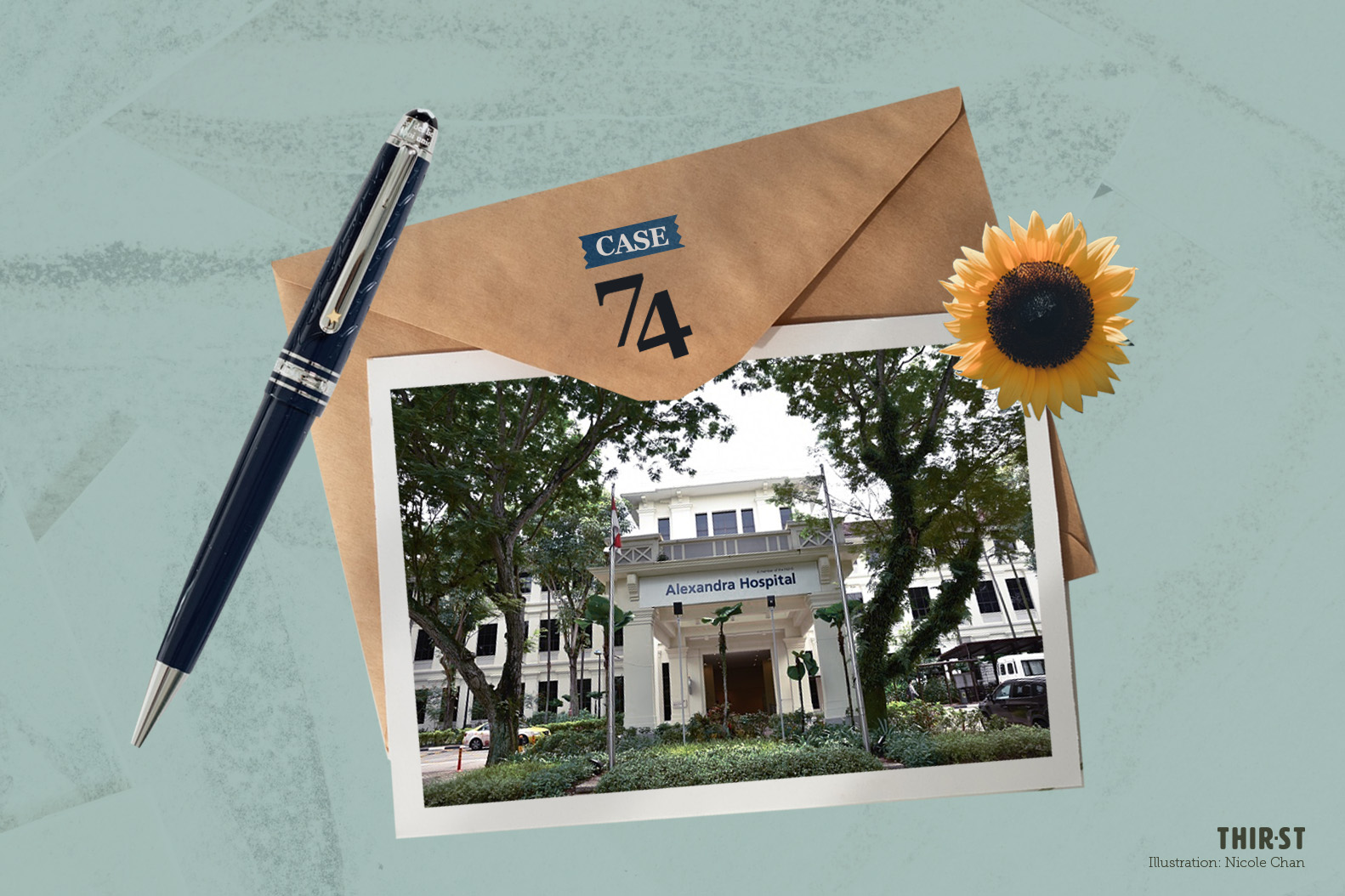A 29-year-old linked to the cluster at Grace Assembly of God decided that he would use his time in hospital to send messages of hope to fellow patients afflicted by the virus.
Starting his three-page letter by saying that being infected by COVID-19 changed his life “forever”, the young man said all he wanted was to get well so that he could be reunited with his family, church and friends.
Known as Case 74, he has been warded in Alexandra Hospital for over a week, where he faced feelings of fear, anxiety and hopelessness.
Encouraged by the support and prayers he received from the people around him, he was inspired to share five survival tips to bring comfort and warmth to those who are hospitalised.
1. BE A GOOD PATIENT
Patients and medical staff should see themselves as one team – so it helps when patients share about their symptoms and provide updates on how they are feeling.
“Be a good patient and not a grumpy one,” he said. “Trust the doctor and the nurses taking care of you.”
The hospital food is “not Michelin star but life-saving”, he quipped, urging fellow patients to eat enough and take in “nutrients and fluids to stay nourished”.
2. KNOW YOU’RE NOT ALONE
Stay connected with your loved ones.
“Get a 2-metre-long mobile phone charging cable. Sign up for Wireless@SG. Have a comfortable earpiece to chillax with music, or video chat with your friends and loved ones,” he said.
However, he advised to go “slow on social media because there will be ‘noises’ which you must filter out” that could cause anxiety.
He also encouraged fellow patients not to worry about the financial costs of the treatment: “The Singapore Government is paying for hospital bills incurred by such as us in public hospitals. So don’t worry.
“All you need to worry about is yourself and your own recovery.”
3. FACE UP TO IT
Shocked at discovering his diagnosis, he revealed that reaching out to God helped him through the hardest moments.
He said: “The first night in the isolation room was the longest night of my life. I couldn’t sleep.”
However, he soon learnt that “being happy and cheerful and free from worry, is the first step to recovery.”
He was also surprised when the nurses in the thick of the action told him that they “draw strength from patients”. So it’s important for patients to be strong for their caregivers too!
4. ENJOY NATURE
The busyness of daily life can sometimes rob us of our peace.
“I took this time to clear the clutter in my brain and stand near my window around 5pm every day to enjoy the warmth of the sunset,” shared the 29-year-old.
He encouraged patients not to stay bed-bound if possible, to get up and look out of the window, and even practise meditation.
“I look out to the greenery, enjoy the sun rays through the clear window glass, take in deep breaths and thank God I am alive and present,” he said.
5. KEEP A JOURNAL
“Put your experience to paper,” he said in his final tip, “and let your loved ones, your children and future generations read about what you had gone through, what went through your mind and what insights you have drawn.”
In closing, Case 74 shared that he is now “penning individual notes of thanks to each and every member of the medical team here for taking good care of him.
“I am AH’s (Alexandra Hospital’s) first patient, and I have promised them that I shall be the first to be discharged.”

There’s more.
The 29-year-old also requested for hospital staff to help with translating the letter into four other languages (Chinese, Malay, Tamil and Bengali) and to arrange for a sunflower to be sent together with each letter.
“We have never met and maybe, we never will,” he said.
Seeing himself as part of Singapore’s first “virtual patient support group for COVID-19”, Case 74 left his well-wishes to his fellow patients: “I sincerely wish myself and you a full and quick recovery and discharge.
“God bless you and God bless Singapore.”
You can read Case 74’s open letter in full here.
- Pray for all of our COVID-19 patients to be fully healed.
- Pray for them to experience comfort, peace and healing from God.
- Pray for Singapore’s frontline medical workers.









